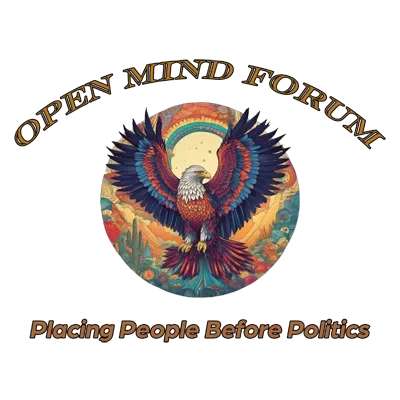How Free Trade Destroyed American Democracy
Introduction: The Trap of The False Promises of Neo-Liberalism
The False Promises of Neo-Liberalism shattered the American middle class. Bill Clinton’s signing of the North American Free Trade Agreement (NAFTA) in 1993 marked a dangerous turn for the Democratic Party. Under the guise of economic growth and globalization, NAFTA and subsequent free trade agreements decimated American labor. They betrayed the very workers who built the backbone of the Democratic Party—union members and the middle class (Bivens, 2007). The shift from labor protection to corporate greed has homogenized American politics. Both Democrats and Republicans now bow to the demands of a global capitalist economy, prioritizing corporate profits over the well-being of American workers (Harvey, 2005).
The False Promises of Neo-Liberalism and Clinton’s NAFTA Gamble
NAFTA was a watershed moment for American labor. President Clinton, representing the so-called “New Democrats,” pushed free trade as a pathway to economic prosperity. But the promise was false, benefiting corporations rather than workers. Nearly one million union jobs disappeared as corporations outsourced labor to

countries with cheaper work-forces (Dumenil & Levy, 2011). Jobs in industries such as manufacturing, textiles, and electronics, once held by skilled American workers, were relocated to countries like Mexico. The promise that free trade would create more jobs in the U.S. was a lie. American workers were left behind as entire industries fled the country.
In 1994, for example, the Whirlpool Corporation closed its Indiana factory, eliminating 1,200 jobs, and moved its production to Mexico. Meanwhile, thousands of steelworkers lost their jobs when U.S. Steel restructured, downsizing its American operations and expanding overseas. These closures devastated local economies, triggering a cascade of financial hardships as workers struggled to find comparable employment. Union members who had fought for better wages and benefits were forced into lower-paying, precarious jobs, many with no health care or pension benefits (Bivens, 2007).
The False Promises of Neo-Liberalism: Corporate Greed Thriving While Workers Suffer
Corporate America thrived on the false promises of Neo-Liberalism. While millions of workers lost their jobs or were forced into lower-paying work, corporate profits soared. CEOs saw their paychecks balloon to over 300 times the average worker’s salary, up from 20 times in 1965 (Klein, 2007). Shareholders celebrated as dividends increased, and corporations enjoyed reduced labor costs by exploiting sweatshop-like conditions in countries with little regulation.
A stark example of this can be seen in the garment industry. Companies like Nike and Gap shifted production to countries like Vietnam and Cambodia, where workers earned as little as $2 per day. Factories that once operated under U.S. labor laws—mandating minimum wages, safety standards, and fair treatment—no longer had to follow these regulations. The consequences were dire for American workers. Jobs that once provided a middle-class lifestyle were replaced by low-wage, insecure work (Harvey, 2005).
Meanwhile, the wealth gap in America widened. By 2017, the top 1% of Americans controlled more wealth than the entire middle class combined (Piketty, 2014). The economic inequality created by Neo-Liberal policies has destroyed the American Dream for millions. Workers once proud of their roles in the economy now struggled to pay bills and support their families.
Obama: Hope Deferred and the Neo-Liberal Continuation-The False Promises of Neo-Liberalism
Barack Obama’s presidency brought hope for those suffering under the Neo-Liberal agenda, but his administration largely continued the policies of his predecessors. Although Obama promised reform and relief, he bailed out the financial sector instead of focusing on structural economic inequalities. The Obama administration’s stimulus package, though substantial, prioritized bank bailouts over middle-class relief. As banks like Goldman Sachs were rescued, millions of Americans faced foreclosure and unemployment (Giridharadas, 2018).
Obama’s support for the Trans-Pacific Partnership (TPP) revealed his continued allegiance to free trade policies that hurt American workers. Although the TPP promised to expand trade opportunities, it mirrored NAFTA’s failures, favoring corporate interests over labor rights. Critics argued that the TPP would exacerbate job losses in the U.S. while benefiting multinational corporations. Obama’s failure to address these concerns further disillusioned the working class, particularly those in industries already decimated by free trade.
The Destruction of Labor: Why We Put Up with It
Why do Americans tolerate the destruction of their labor market? The answer lies in the manipulation of political discourse and the deception embedded in Neo-Liberal rhetoric. The false promises of Neo-Liberalism are often hidden behind economic jargon, promising that free trade would uplift all Americans (Chomsky, 1999). In reality, it served the interests of the corporate elite. The Democratic and Republican parties alike endorsed free trade policies, claiming they would foster innovation and growth, but these promises were never fulfilled for workers.
Furthermore, political distractions have kept voters from confronting the reality of these economic changes. Immigration, crime, and cultural divides have been weaponized to pit working-class Americans against each other, diverting attention from the real enemy: a global capitalist system that enriches the few while impoverishing the many (Stiglitz, 2002). Politicians stoked fear of immigrants taking jobs, ignoring that corporations were responsible for offshoring jobs to avoid paying fair wages and following regulations.
Free Trade’s Impact: The Hollowing Out of the Middle Class
The impact of free trade policies like NAFTA has been devastating for the American middle class. Factories closed, entire industries were shipped overseas, and unions, once the bedrock of the American workforce, were systematically dismantled. The auto industry, which employed millions of Americans, moved significant production to countries like Mexico, where labor was cheap and regulations lax. Ford Motor Company, for example, shifted a major portion of its manufacturing to Mexico in the early 2000s, resulting in tens of thousands of job losses in cities like Detroit.
The decline of the American steel industry, once a symbol of industrial strength, is another stark example. Between 1990 and 2010, the U.S. steel industry shed more than 250,000 jobs as companies moved production overseas to avoid stricter environmental regulations and higher wages. These losses did not only affect the workers but also entire communities that relied on the industry. Schools, hospitals, and local businesses collapsed as the tax base eroded, leading to widespread poverty in regions like the Rust Belt (Stiglitz, 2017).
Neo-Liberalism’s Consequences: An Economy for the Few
The consequences of Neo-Liberalism are undeniable. Income inequality has soared, with the wealthiest Americans enjoying unprecedented prosperity while the working class sinks into poverty. The gap between CEOs and their employees has never been greater, with executives raking in millions while their workers struggle to survive on minimum wage. The American political system, once intended to serve the people, now primarily serves corporate interests. Both parties, under the guise of economic growth, have embraced policies that perpetuate the widening economic divide.
The political fallout from this shift has been severe. Voters have become increasingly disillusioned with both the Democratic and Republican parties. As wages stagnate, costs rise, and opportunities disappear, more Americans are turning to populist movements that promise to upend the Neo-Liberal order. However, these movements often fail to address the root of the problem: an economic system that prioritizes corporate profits over human welfare (Monbiot, 2001).
Conclusion: Free Trade as the End of Democracy
The false promises of Neo-Liberalism have torn apart the fabric of American society. Free trade has destroyed the middle class, devastated labor unions, and left workers vulnerable. Politicians, both left and right, have embraced the Neo-Liberal agenda, focusing on corporate profits while ignoring the needs of the people. The American Dream has been replaced by a nightmare of economic inequality, political manipulation, and corporate greed. We must ask ourselves why we allow this to continue. If democracy is to survive, we must reject the false promises of Neo-Liberalism and demand policies that serve the people, not just the powerful.
_________________________________________________________
Sources Cited
- Bivens, J. (2007). Globalization and American Wages. Economic Policy Institute.
- Chomsky, N. (1999). Profit over People: Neo-liberalism and Global Order. Seven Stories Press.
- Dumenil, G., & Levy, D. (2011). The Crisis of Neo-liberalism. Harvard University Press.
- Giridharadas, A. (2018). Winners Take All: The Elite Charade of Changing the World. Knopf.
- Harvey, D. (2005). A Brief History of Neo-liberalism. Oxford University Press.
- Klein, N. (2007). The Shock Doctrine: The Rise of Disaster Capitalism. Picador.
- Monbiot, G. (2001). The Age of Consent: A Manifesto for a New World Order. HarperCollins.
- Piketty, T. (2014). Capital in the Twenty-First Century. Harvard University Press.
- Stiglitz, J. (2002). Globalization and Its Discontents. W.W. Norton & Company.
- Stiglitz, J. (2017). Globalization and Its Discontents Revisited. W.W. Norton & Company.
_________________________________________________________
Suggestions for Further Reading
- Bhagwati, J. (2004). In Defense of Globalization. Provides a defense of free trade from an economic perspective.
- Chomsky, N. (1999). Profit over People: Neo-liberalism and Global Order. A critical examination of Neo-Liberalism’s impact on democracy and society.
- Klein, N. (2007). The Shock Doctrine: The Rise of Disaster Capitalism. Focuses on how crises are exploited by corporations under Neo-Liberalism.
- Harvey, D. (2005). A Brief History of Neo-liberalism. A comprehensive look at the rise and global influence of Neo-Liberalism.
- Piketty, T. (2014). Capital in the Twenty-First Century. Analyzes wealth inequality in modern economies.
- Stiglitz, J. (2017). Globalization and Its Discontents Revisited. Explores the negative consequences of globalization on economies, particularly in the U.S.
- Monbiot, G. (2001). The Age of Consent: A Manifesto for a New World Order. Presents alternative economic systems in response to the failures of Neo-Liberalism.
- Giridharadas, A. (2018). Winners Take All: The Elite Charade of Changing the World. Investigates how elites maintain power through corporate-driven Neo-Liberalism.
Disclaimer: The images and videos in this post are AI-generated creations, intended purely for illustrative and conceptual purposes. They are not real-life representations and should not be interpreted as such. Their sole purpose is to offer a visual means of exploring the topics discussed in this post.




